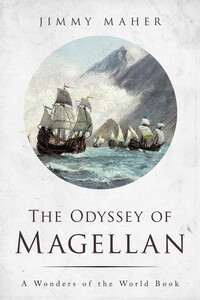It’s been a mixed week here in the man cave. On the one hand, last week’s article on SimCity blew up pretty big in social media, attracting lots of positive comments in the process; believe me, a writer can never tire of adjectives like “wonderful,” “fantastic,” and “hugely interesting.” But on the other, I made one of the more embarrassing errors in this blog’s history with the video clip I embedded into the same article; I attributed the speaker in that video to be Will Wright instead of his racing partner Rick Doherty. Then, just to compound the error, I decided to get all cute about it: “Wright shows off some of the RX-7’s gadgetry using the same rapid-fire, jargon-laden diction that journalists and tech-conference attendees would later come to know if not always love.” Ouch. Teach me not to try to be too clever.
But most of all this week, I’ve been struggling with my planned second article about SimCity. Actually, I’ve been struggling with my coverage of the game in general on and off for months now. My original plan was to do a deep dive, to try to draw a lot of connections to the history of urban planning and the lives of cities in general. I never could quite figure out how to do that in an interesting way, however, especially as I spent more time with the simulation itself and had to face how limited it ultimately is. My big plans got pared down to a couple of articles, one more factual and historical, one more critical and philosophical.
And then this week I couldn’t seem to get even the second of those articles to come together. My work kept devolving into a nitpicky poking of holes in the simulation, which isn’t really fair given the constraints under which it was produced. Or it became an extended critique of Will Wright for failing to make the sorts of games I personally most enjoy playing, which is still less fair, especially given that his work on SimCity cracked open the door for so many later games I do unabashedly love.
At some point in all of this, I realized something: that the first article stood alone just fine. It says everything I want and need to say about SimCity‘s history and its importance to gaming. Should there be any doubt, the latter will inevitably be continually reemphasized in future articles, as I write about some of the countless games that bear the stamp of Will Wright’s original innovation — not least many of the games designed by my personal hero Sid Meier. So, I’ve decided largely to leave well enough alone. I’ve tinkered a bit with the first — now only — article to highlight a few points, but rereading it is probably only for the extremely dedicated among you.
I feel very good about the decision, but all of this wheel-spinning does mean that I can’t give you a new article this week, for which my apologies. As the writers among you can doubtless attest, sometimes you don’t really know what you already have until you try to add to it. What can I say? It’s a process.
Next week we’ll be continuing with our previously planned programming, returning to the British scene for a few more articles after our brief sojourn back to the United States for SimCity. I’ve got some very interesting material in the oven — and material which I thankfully know exactly what to do with. So, catch you then.
In the meantime, thanks a million as always for reading and supporting this work!










